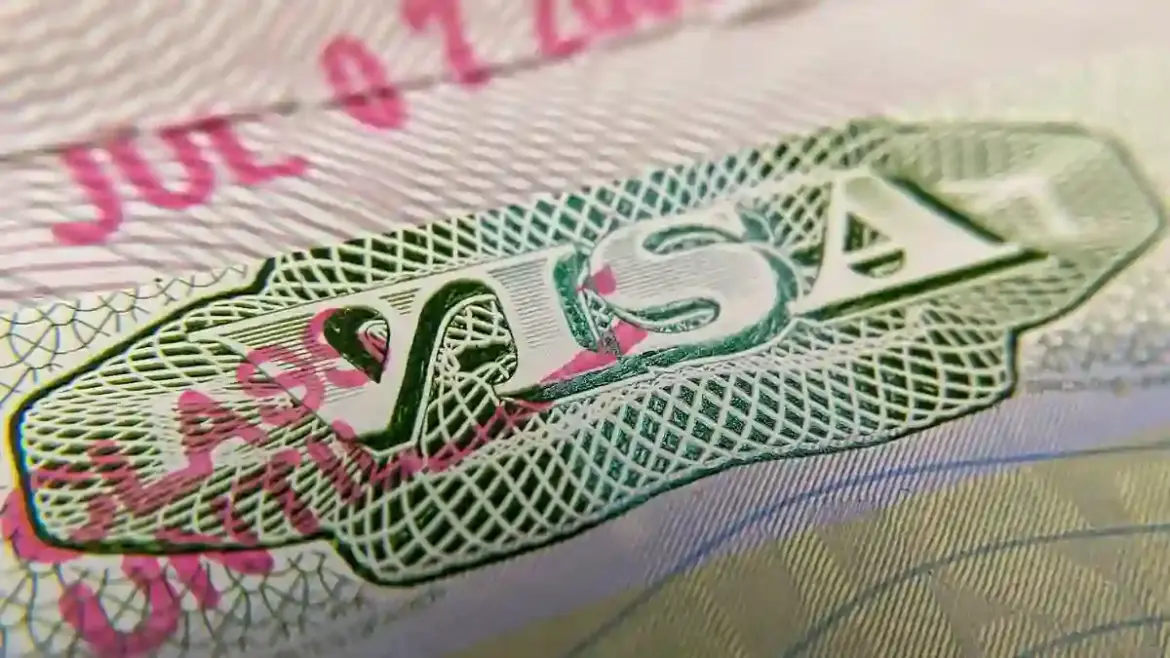The Trump administration is turning to cutting-edge artificial intelligence to conduct what could be the largest immigration review in U.S. history.
More than 55 million visa holders are reportedly under the microscope—but insiders say the reality on the ground is far more targeted than the headlines suggest.
A former State Department official told the Daily Mail that the operation is as much psychological as it is practical.
“They don’t actually need to comb through 55 million people,” the official explained.
“Just announcing that level of scrutiny pressures those who know they’re overstaying their visas or otherwise ineligible to self-deport before federal authorities catch them.”
Continuous Vetting and Social Media Monitoring
The State Department has confirmed that all visa holders will face “continuous vetting” to catch potential violations.
This includes overstays, criminal activities, and even links to terrorism.
Social media accounts and immigration records from other countries will also be reviewed as part of this unprecedented sweep.
This AI-driven initiative comes shortly after Trump tightened access to student visas and follows a 20% staff reduction at the State Department.
The combination makes manual reviews nearly impossible without technological assistance.
AI Capabilities Questioned by Experts
Despite the push for automation, experts are raising red flags about relying heavily on AI.
A former official pointed out the challenge: “It’s not a manpower issue; it’s a capabilities issue.
Can AI accurately cross-reference 55 million identities with eligibility rules? That’s doubtful.”
Automation could lead to people being flagged unfairly or even wrongly deported.
Recent student visa crackdowns have already employed AI-powered services, former staff say.
Targeted Strategy Under the Radar
State Department insiders suggest that the so-called “full sweep” of 55 million visas may actually prioritize certain countries, though officials cannot publicly acknowledge it. Current staff admit the approach is controversial.
“That sounds insane. I’m just happy I’m not in consular affairs,” one employee told the Daily Mail.
Immigration experts are calling for more transparency. Julia Gelatt of the Migration Policy Institute said, “We don’t really know how the department is executing this, and I doubt they’ll want to tell us.”
She suspects the operation resembles an ongoing database check, akin to ICE’s continuous monitoring of people without legal status.
Risk of Errors and Political Bias
Gelatt warned that incomplete or outdated data from government databases—like FBI records—could result in wrongful visa revocations.
Past incidents show the system isn’t foolproof:
-
In April, Japanese BYU student Suguru Onda had his visa terminated after minor legal infractions like a fishing citation and speeding tickets, likely due to an AI error.
-
In March, Turkish Tufts University student Rümeysa Öztürk was arrested after her F-1 visa was revoked, sparking criticism from lawmakers and civil rights advocates.
Technology analyst Rob Enderle added, “AI platforms prioritize speed over accuracy.
People could be deported erroneously, or others might slip through who shouldn’t.”
Calls for Testing and Oversight
Experts insist that AI reviews should be accompanied by human oversight until error rates fall to acceptable levels.
Yet, with staff cuts, that seems unlikely.
Gelatt called the 55 million figure largely symbolic, noting that many of those targeted may not even live in the U.S.
“It’s one thing to track someone linked to a terrorist organization,” she said. “This is something completely different.”
Impact So Far on Student Visas
Since Trump took office in January, the State Department reports revoking roughly 6,000 student visas, around 4,000 of which involved students violating the law.
Meanwhile, the Department of Homeland Security noted that nearly 13 million green-card holders and nearly 4 million temporary visa holders were in the U.S. last year, highlighting the scale of the system this AI sweep seeks to monitor.
